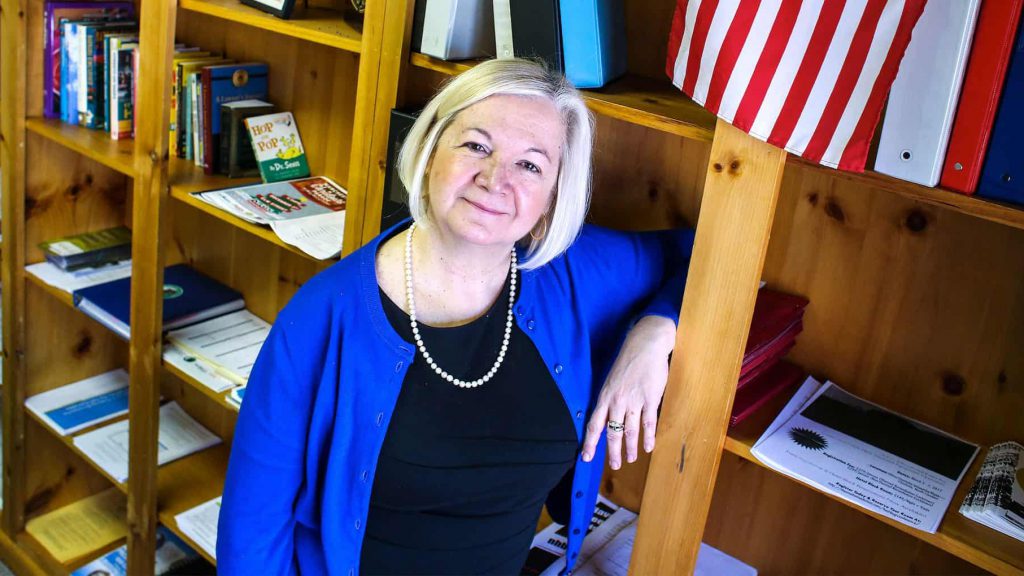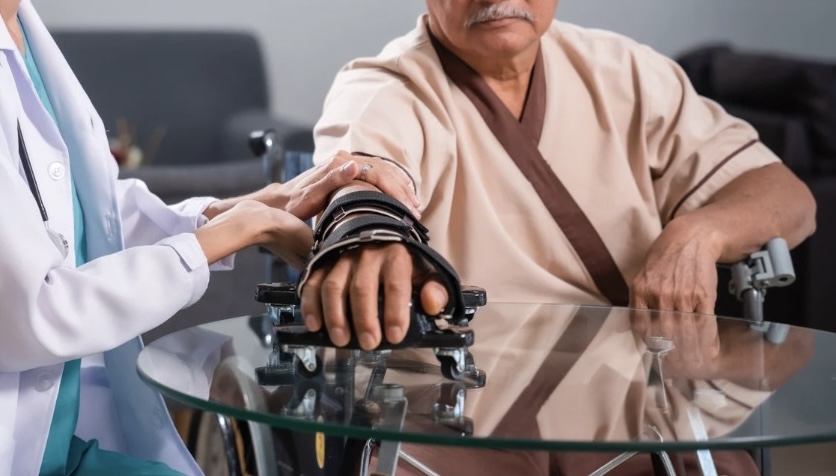With just less than 6 weeks until Election Day, the New Hampshire Secretary of State’s office has told members of the public to turn to official sources for the most reliable guidance on how to vote. But there’s a problem – the information is only available in English.
Enter Eva Castillo, director of the New Hampshire Alliance for Immigrants and Refugees, leading translating guidance or even accompanying voters who are less fluent in English to the polls.
“It falls upon our shoulders to do the work of the Secretary of State, to tell you the truth,” Castillo tells NHPR. “We do have a great network of people that work in the community, but if we do not do it ourselves, then these people will not even vote.”
Castillo knows well the challenges immigrants face. She settled in Manchester in the 1980s. In an interview with Roads & Kingdoms, she recalled, “People would say, “Wow. I hear an accent. Where are you from?” And I’d say, “Venezuela.” “Where is Venezuela?” They didn’t even know where Venezuela was on a map. And I said, “South America.” “Oh, but you’re white.” And I used to tell my husband, “And we are the third-world country?” It was so funny.
A state legislator once told her that she had come “to pollute the blood of New Hampshire. “Here (United States), they group you, and they make us behave as one. I went straight, just by crossing a border, from being a member of the privileged minority to being a member of the unprivileged minority. So within two weeks, I said, “This stings, but so be it. I’m not going to change it.” I’m always very practical, so I said I’m going to work to make sure that we rise.
Castillo has been working with documented and undocumented immigrants as they transition to life in the Granite State since joining MIRA in 2007. When she first moved to New Hampshire, she worked at the New England Farm Workers Council, and later at the Latin American Center in Manchester.
“These are the people that are suffering the most, because these are the faces of the undocumented, although I know undocumented Canadians and Europeans who come right under our noses and nobody pays attention to them,” Castillo said at a forum on the national immigration debate. “They only mess with the brown people and that’s it.”
When asked about how President Donald Trump’s prejudiced rhetoric about undocumented people, she said, “I always say we cannot blame Trump for racism because racism was there before. But he made it acceptable. So people that were racists didn’t express it because there was no culture to express it. Now they’re emboldened and happy to throw it in your face. And every time you talk about diversity, people react viscerally, badly. Like you’re taking something away from them.
A record 32 million Hispanics – Latinos are projected to be eligible to vote (13.3% of all eligible voters) the largest, nonwhite racial or ethnic electorate in the 2020 elections.
There are roughly 22,000 Hispanics – Latinos in New Hampshire, which account for 3.3 percent of the state’s population. They make up 2.2 percent of the electorate, and more than half of those people are eligible to vote.
New Hampshire is considered a swing state in the upcoming election. The latest polls have Joe Biden over Trump by as much as 13% of the vote. Trump narrowly lost to Hillary Clinton in 2016.
Castillo isn’t concerned who Hispanics – Latinos vote for; just concerned about them voting. “I don’t tell them who to vote for. I don’t do party politics, because I’m not about that. I don’t want to manipulate people”, she said. “Go vote.” It’s important to voice your opinion. If you’re not active politically then you have no right to complain. If you did not put your voice there, how do you expect to be listened to?”, she continued.
Castillo said the New Hampshire Secretary of State’s office isn’t being proactive enough on the issue of language barriers facing many new citizens in New Hampshire. She said the state should reach out to advocates like her to ensure voters from lots of different backgrounds have the support they need to participate in New Hampshire’s elections and to find the best way to engage with voters beyond posting translated material on a government website.
“Your average person here, naturalized citizen, has no clue who the Secretary of State is,” she said.




